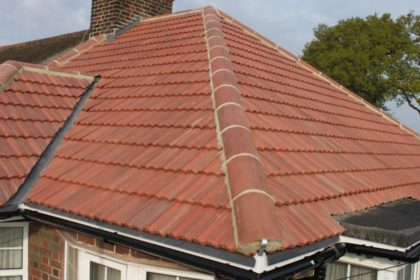 How Can I Protect My Roof in Summer?
How Can I Protect My Roof in Summer?
Although it’s taking its time, summer’s on its way. While we might not have the heat waves we experienced last year, summers are becoming gradually hotter, and we need to be ready for it. And that includes looking after your roof.
The Dangers of Heat for Your Roof
In Britain, we’ve traditionally thought of extreme weather as being storms, torrential rain or snow and ice. All of these can damage your roof, but so can hot summer weather.
Most roofs in the UK weren’t constructed to cope with the kind of heat that’s becoming the new normal. Traditional roofing materials, such as tiles, concrete, metal or felt, tend to absorb heat. Besides potentially heating up your roof space, this can lead to the materials warping, buckling or cracking, which will let in water when it rains.
Fortunately, there are various ways of heat-proofing your roof, whether pitched or flat, to prevent it from absorbing too much heat.
Heat-Proofing Pitched Roofs
- Have your roof coated with polyurethane foam, which effectively seals it. As with any system sealing your roof, this should be done in a way that doesn’t compromise the ventilation in your roof space.
- Install solar panels on your roof, which will protect it from the sun’s heat at the same time as collecting energy. This is obviously an expensive option purely as a heat-proofing solution, but the saving in your energy bills will pay for itself in the long run.
Heat-Proofing Flat Roofs
- Coating your flat roof with liquid rubber offers a number of advantages, but in terms of heat, it provides effective insulation. It’s also very flexible, so it’s unlikely to crack, and any expansion will quickly revert to the original shape.
- Coat the roof with reflective paint, which reflects heat away from the roof. This can only be used with a completely flat roof, otherwise, the reflected light could dazzle people nearby, including drivers.
- Planting a roof garden provides natural insulation, as well as extending the green spaces in your property. However, bear in mind that this is only possible if the roof is structurally strong enough to take the weight of both the garden and of you walking on it.
Checking Your Roof
Whether or not you take any of these options to protect your roof in summer, it’s important to check for damage just as regularly as you would over the winter. A heatwave, just like a storm, can do a lot of damage, so make a particular point of checking after extreme heat.
Checks can be done from street level with binoculars, as well as from inside your roof space, where pinpricks of light will show up holes. You also need to check your guttering regularly and clean out any debris clogging it up. This will prevent water from pooling either on your roof or on the ground below.
Roof Work Is for Professionals
Apart from cleaning your gutters, which an experienced DIYer can handle, all work on your roof needs to be carried out by professionals. A roof can be a dangerous place for anyone who isn’t used to being there. Besides, any of the work described could be worse than useless if not done properly.
Give us a call to talk about how we can help you protect your roof this summer.









